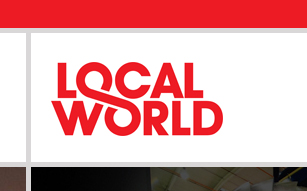Local World: the future of journalism or lost media jobs and the beginning of the end?
 Newspapers owned by Local World could soon be put together by an individual in a single session, according to CEO David Montgomery.
Newspapers owned by Local World could soon be put together by an individual in a single session, according to CEO David Montgomery.
In a 2200-word screed sent to staff this week, Montgomery outlined his vision of “highly templated” newspaper formats abstracted from “largely online published content” by one content manager or content director.
The implication for a range of media jobs is vast. Under his proposals, subs, news editors and features editors are all outdated titles. Instead, individual journalists would take full responsibility for subject areas such as crime, education, business and sport. Each of these individuals would work remotely, and “embody all the traditional skills of reporter, sub-editor, editor-in-chief as well as online agility and basic design ability”.
Journalists will be primarily responsible for “content harvesting” across their respective areas, with the majority of that content produced by third-party providers, including the police, local government, businesses and sports clubs. The aim is to “serve every one of communities [sic] with content that is rich and comprehensive so there is no place other than the local publisher that our audience and readers need to find”.
The radical reshaping would not stop there. Editors would become “directors of content” concerned with content strategy and high-level decision making and “will spend little time selecting page leads… those areas of taste, legalities and newspaper style should be absorbed by the rank and file senior journalists… rather than being presided over grandly by the man the glass office.”
As a result of this fundamental shift, there would be “a tolerance to individual styles” and “the old-fashioned publishing structure that acts as a hydra-headed nanny will no-longer exist”.
Now, I’m all in favour of journalists having well-rounded skill sets, and of publishers going ‘digital-first’ – in fact it’s pretty much essential in the modern world. But this reads very much like a manifesto for rehashed press releases and repurposed content from other sources, with little consistency or coherence of tone.
The set-up also seems to do-away with the established process of a second person taking a look at a piece before publication and potentially saying “hang on, are you sure this is a good idea?” This is all very well, but what happens when the first lawsuit rolls in?
But then legal considerations might not be that much of a problem as it appears that these titles won’t be publishing anything particularly controversial: Montgomery has said in the past that he wants to put an end to the model where “a single journalist goes out on a single story, comes back and writes it up”, which presumably rules out investigative journalism, multiple sources or anything else that takes up too much time.
Nowhere in his lengthy letter does Montgomery address the question of why anyone would bother to read a title that’s been put together in this way. Readers aren’t idiots; if the content appears flimsy they will simply stop bothering to look. Furthermore, content without much substance and little attention to detail badly serves the communities in question. Who will be there to hold local councils, businesses, and football clubs to account? Will journalists be pressured to do local news well or to just quickly produce content that can be found elsewhere? National websites and magazines will become increasingly desirable to readers, as they will retain the resources to provide more entertaining and informative content. Smaller online rivals may even emerge to provide entertainment listings and classified advertising, while dedicated local bloggers will continue to dig into the stories that really should be the preserve of the local press.
In addition, Montgomery’s vision of local newspaper websites as a “one-stop shop” for content betrays a profound misunderstanding of the way people actually consume digital media. The BBC, Guardian and Daily Mail websites aren’t one-stop shops. People arrive through Google, through social media, through email links, and increasingly pick and choose the content they want from their favourite outlets via RSS readers and mobile aggregators like Flipboard and Pulse. As digital strategists keep telling us in interviews, the old-fashioned idea of a self-contained website held together by a rigid structure is in decline.
I know how difficult it is to make money in newspapers these days, but a website and a paper that hardly anyone wants to read isn’t likely to prove a particularly attractive prospect for advertisers either. Rather than investing in content, this looks like an excuse to squeeze costs still further. It’s the modern fallacy of “doing more with less” writ large – but does it really represent doing more, and could there be less coming in at the end of it?
Local communities deserve better, and chances are they will go elsewhere to find it.